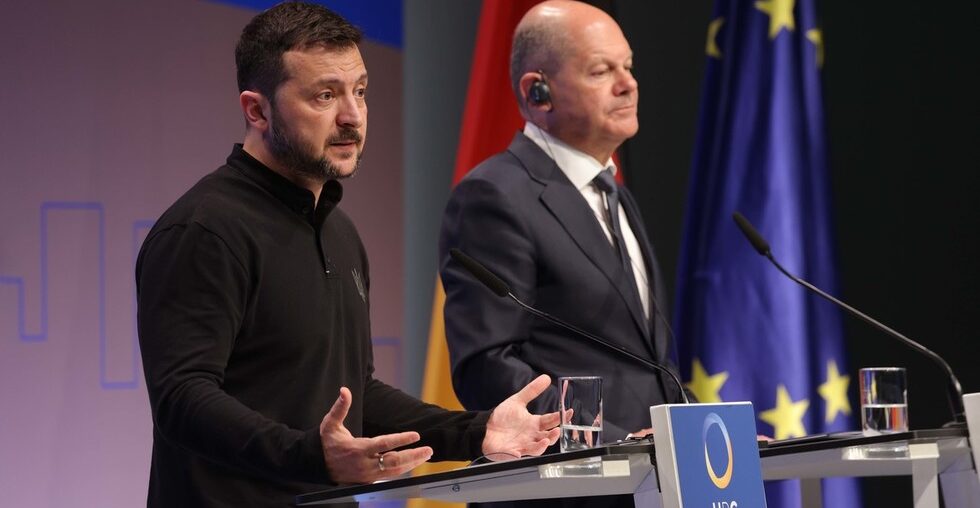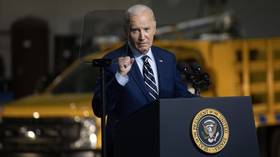Germany’s Olaf Scholz reportedly promised the Ukrainian leader nothing on long-range weapons deliveries and fast-tracking its NATO membership
German Chancellor Olaf Scholz has evaded Vladimir Zelensky’s questions on whether Kiev will be accepted into NATO, or receive long-range missiles from Berlin, Bild reported on Saturday, describing the Ukrainian leader’s trip across Europe to secure military support as a fiasco.
According to the German tabloid, Zelensky had two main goals in mind when he embarked on a whirlwind tour of meetings with Western leaders: obtaining permission to use foreign-made weapons – including still-undelivered German Taurus missiles to strike strategic targets deep in Russia – and the promise of a speedy NATO accession process.
However, Bild described the results as “pretty poor,” saying that the two Ukrainian demands “fell on deaf ears in Berlin.” While the chancellor “did not definitely say ‘no’, there was no positive response” from him either, the article said.
In another setback for Zelensky, he was unable to meet with US President Joe Biden, who remained stateside to monitor Category 5 Hurricane Milton as it ravaged Florida. However, an unnamed Ukrainian insider quoted by Bild dismissed that as an “excuse,” claiming Biden did not want to raise the topic of the conflict at the peak of the US election cycle.
Ukrainian officials have repeatedly asked Germany to provide long-range Taurus missiles, which can hit targets as far as 500km away. Despite heated debate and back-and-forth in Berlin on the issue, Scholz has so far refused to oblige, citing escalation concerns and arguing that the deliveries would only be “tenable” if Berlin could determine the targets itself, which would make it a direct participant in the hostilities.
Russian President Vladimir Putin has said that if the West decides to allow Ukraine to use foreign-made long-range weapons to strike deep into Russia, it will mean that NATO is “waging war” against Moscow. He has also ordered an update of the national nuclear strategy to say that “aggression against Russia by any non-nuclear state, but with the participation or support of a nuclear state” shall be regarded as a “joint attack” and an action crossing the threshold for employing nuclear weapons.


